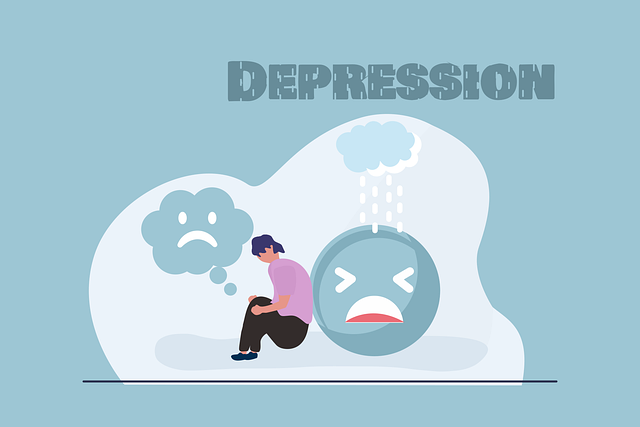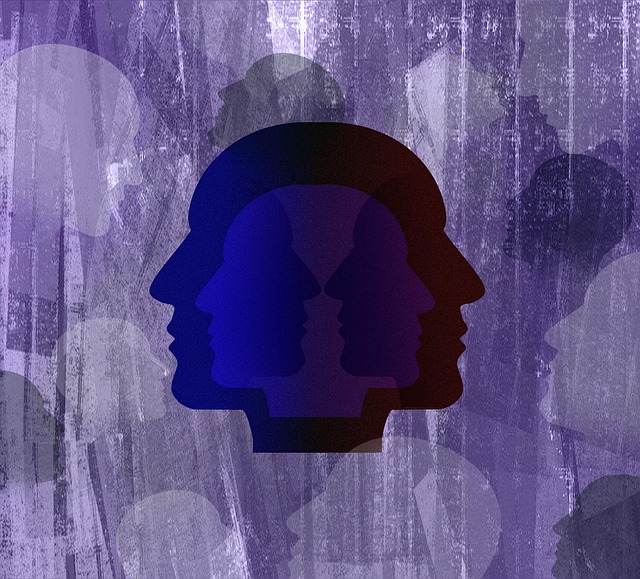Understanding mental health in Boulder requires holistic strategies similar to physical health approaches like cancer care. Key methods include Compassion Cultivation Practices, Resilience Building programs, and Mental Illness Stigma Reduction. An effective education program for Boulder cancer issues therapy settings integrates mindfulness, workshops, peer support, and risk assessment for professionals to prevent burnout. Combining theoretical learning with practical exercises empowers participants to create supportive environments that promote resilience in therapy delivery. Evidence-based strategies, crisis intervention guidance, and stress management techniques are crucial for building resilience and mitigating risks, enabling individuals to recognize mental health issues early, as in Boulder Cancer Issues Therapy's focus on early detection. Measuring success involves participant outcomes like improved coping mechanisms, stress management, and behavioral changes, tailored through data-driven adaptations for specialized coaching to address burnout concerns.
In today’s fast-paced world, mental health education is more crucial than ever. This comprehensive guide explores the design of effective programs, focusing on key components that foster understanding and resilience. From unraveling the complexities of mental health to implementing evidence-based strategies, we delve into a structured approach that addresses individual needs. By measuring success and adapting accordingly, these programs can significantly enhance well-being, mirroring the transformative power seen in cancer therapy for Boulder’s community.
- Understanding Mental Health: Unraveling the Complexities
- Designing an Effective Education Program: Key Components
- Implementing Evidence-Based Strategies for Lasting Impact
- Measuring Success and Adapting to Individual Needs
Understanding Mental Health: Unraveling the Complexities

Understanding mental health involves navigating a complex landscape where various factors interweave to impact an individual’s well-being. It is essential to recognize that mental illness is not merely a personal struggle but a public health issue that deserves attention and care, much like its physical counterpart, cancer. In Boulder, the challenges related to mental health issues are significant, requiring comprehensive approaches to therapy and support services.
One such approach involves Compassion Cultivation Practices, which foster empathy and understanding among individuals. Additionally, Resilience Building programs empower people to cope with life’s uncertainties. Moreover, Mental Illness Stigma Reduction Efforts play a pivotal role in creating an inclusive environment, ensuring those facing mental health struggles feel supported rather than isolated.
Designing an Effective Education Program: Key Components

Designing an effective mental health education program involves several key components to ensure it meets the needs and enhances the well-being of individuals in Boulder cancer issues therapy settings. Firstly, incorporating evidence-based practices such as mindfulness meditation has been shown to improve emotional healing processes among patients navigating challenging health journeys. Programs should also prioritize interactive workshops and group discussions to foster peer support and knowledge sharing.
Additionally, integrating risk assessment strategies for mental health professionals is crucial to identify potential burnout triggers and provide timely interventions. By combining theoretical learning with practical exercises, these programs can empower participants to create supportive environments that promote resilience and effective therapy delivery. The overall design should aim to cultivate a holistic understanding of mental health within the specific context of Boulder cancer care.
Implementing Evidence-Based Strategies for Lasting Impact

Implementing evidence-based strategies is paramount when designing mental health education programs aimed at fostering resilience and mitigating risks. By drawing from research-backed approaches, such as crisis intervention guidance and stress management techniques, educators can ensure that participants gain practical tools for navigating life’s challenges. These strategies empower individuals to recognize early warning signs of potential mental health issues, offering Boulder cancer issues therapy a proactive rather than reactive approach.
Integrating evidence-based practices also involves equipping mental health professionals with comprehensive crisis intervention skills and risk assessment techniques. This dual focus—educating both the general public and specialists—creates a supportive ecosystem where individuals feel empowered to seek help and professionals are equipped to provide effective interventions, ultimately enhancing mental well-being outcomes for all.
Measuring Success and Adapting to Individual Needs

Measuring success in mental health education programs is a nuanced process that goes beyond mere attendance. It involves assessing the impact on participants’ lives, such as improved coping mechanisms, enhanced self-awareness, and better stress management skills. This can be achieved through various methods including pre- and post-program surveys, individual or group discussions, and tracking long-term behavioral changes. By gathering this data, program designers can tailor their approach to cater to diverse needs. For instance, identifying common challenges like burnout among healthcare professionals might inform the development of specialized mental wellness coaching programs focused on resilience and self-care.
Adapting to individual needs is a cornerstone of effective mental health education. Incorporating communication strategies that foster open dialogue allows participants to express their unique struggles and successes. This personalized interaction ensures that the program remains relevant and engaging, addressing specific concerns like burnout prevention for overworked professionals or coping with cancer-related issues in a supportive manner. Such adaptability not only enhances learning outcomes but also fosters a sense of community and belonging, crucial elements in the journey towards mental wellness.
In designing mental health education programs, it’s crucial to integrate complex understanding with evidence-based strategies. By focusing on key components such as comprehensive curriculum, inclusive teaching methods, and adaptive assessment, we can foster lasting positive impacts similar to successful initiatives like Boulder Cancer Issues Therapy. Measuring success through diverse metrics ensures tailored support for individual needs, creating a more resilient and mentally well society.











